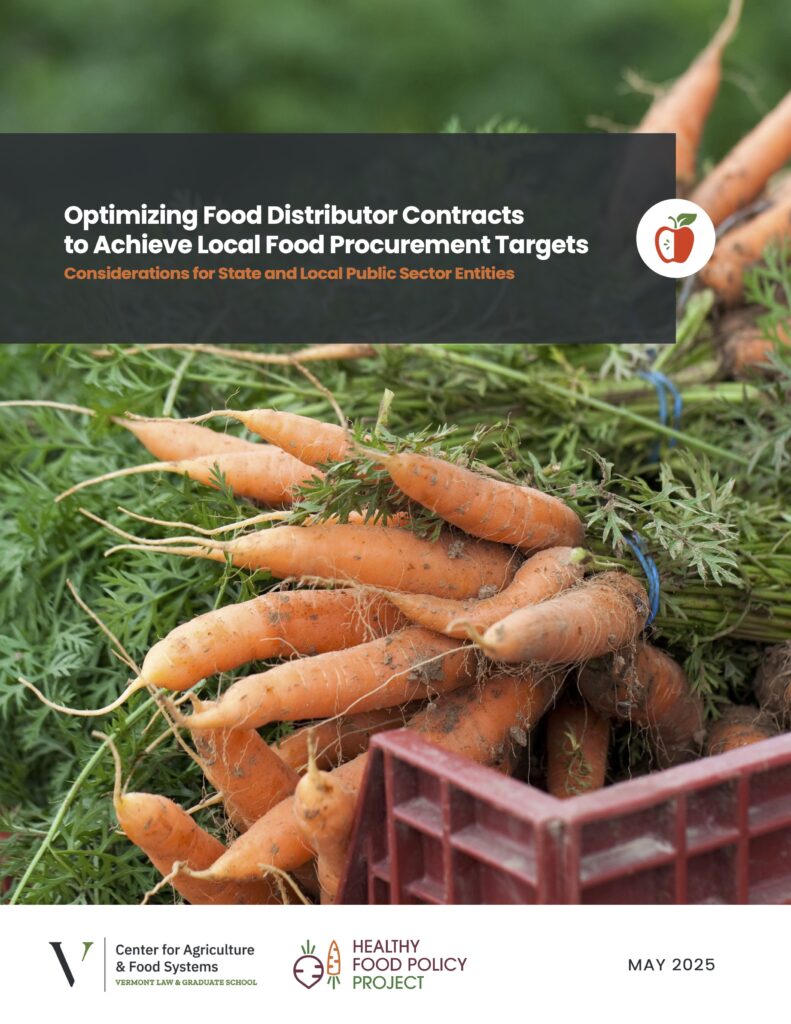New HFPP Guide Focuses on Distributor Contracts to Help Procurement Teams Buy More Local Food
In recent years, many states have set ambitious targets to increase the purchase of local food by public institutions like schools, hospitals, and prisons. But how are those institutions meeting those targets? A new guide from the Healthy Food Policy Project (HFPP) explores options for public sector procurement teams to optimize their contracts with food distributors—particularly through contract drafting, negotiation, and monitoring—to support local food goals.
Optimizing Food Distributor Contracts to Achieve Local Food Procurement Targets
Considerations for State and Local Public Sector Entities
State policies often present local food purchasing targets as aspirational goals or specific mandatory quotas. Maine, for instance, enacted a law in 2020 that set a goal that “no later than 2025, 20% of all food and food products procured by state institutions are Maine food or food products.” The benefits of these locals purchasing targets can be substantial, but public sector entities face significant challenges when they try to increase the amount of local food they purchase.
“Optimizing Food Distributor Contracts to Achieve Local Food Procurement Targets: Considerations for State and Local Public Sector Entities” highlights real-life examples of how procurement teams can improve internal contracting processes to meet these targets. The HFPP guide also includes an Appendix with sample contract solicitation and drafting language that emphasizes local food sourcing, as well as a list of state statutes or executive orders that set local food targets.
